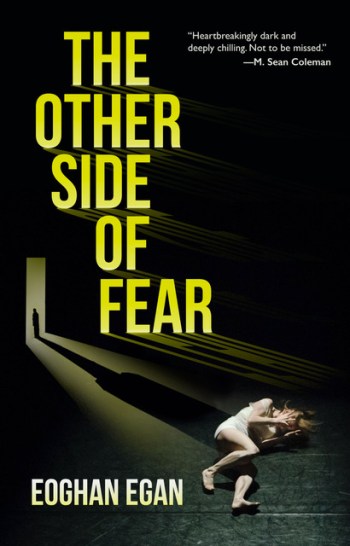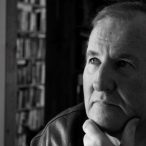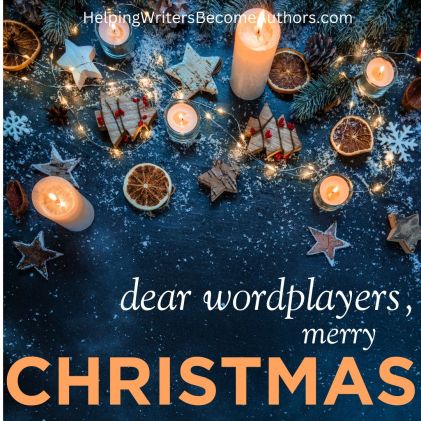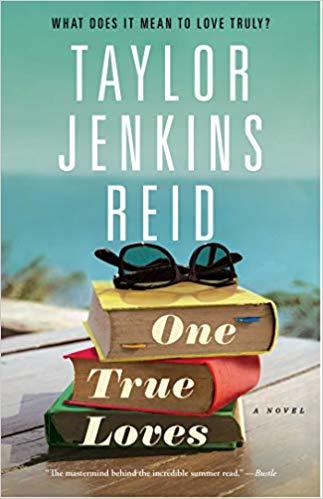My thanks to Sean of Red Dog Press for the place on the tour and for providing all the information. The Other Side of Fear, #2 in The Ganestown Trilogy is published today. It’s a pleasure to take part in the launch celebrations by sharing a Q&A with author Eoghan Egan.
Hah. Writers are strange characters. A thousand five star reviews is validation of the hard work involved. One bad review can gnaw at our insides for weeks.RDP: https://bit.ly/3GCgxTHGo on holidays and see a dozen people around the hotel swimming pool or on the beach, reading my books.
1) Cats meowing at the window, wanting to come in. (Once you make eye contact, you’re doomed). What’s your go-to karaoke song?
What did you edit out of this book?
A graduate of Maynooth University’s Creative Writing Curriculum and Curtis Brown’s Edit & Pitch Your Novel Course, Eoghan divides his time between Roscommon and Dublin.
Biggest hope? That it gets the opportunity to reach the biggest possible audience to give it the best chance of becoming a success.
I’ve started writing the third book in the trilogy. With a decent tailwind, I’ll deliver that manuscript to my publisher in October, for launch in March ’23. After October, I’ve half-a-dozen short stories I want to finish. That’ll take me up to Christmas 2022, and then, that’s it.
Personally, I like titles to have a connection with the story. Hiding in Plain Sight is about a respected businessman by day, serial killer by night, living within a rural community, where he’s the last person to be a suspect.
What was the last book you read that made a real impact on you?
Follow the author:
I’m envious of writers who can churn out a few books per year, but as I write this, I don’t have any ideas that excite me enough to make me want to write another manuscript. So, unless I get a lightbulb moment while I’m writing #3 in the Ganestown trilogy, that could be it as far as novel writing is concerned. Perhaps I’ll use what I’ve learned over the past twelve years to help other writers achieve their dreams. Or I might get involved in movie scripts. We’ll see…

In 2012. I read a newspaper article about a spate of disappearances in Greenville, US, and wondered how people could vanish, literally, in broad daylight, so I wrote the story, with a lot of “what if” questions in mind.
I grew up in a home full of books. My earliest memory is sitting on my father’s knee with him reading bedtime stories to me.
God, no. Well, not me, anyway. I’m just an ordinary guy doing something I enjoy. No doubt, success goes to some author’s heads, but personally, success or failure, I stay humble.
How many drafts did you do of this book?
The Ganestown Trilogy is set in Ireland. How important is the setting of your books in telling the story?
Hmmm. Interesting question. I self-published my first book, so I spent seven years planning, writing, editing, redrafting, deleting, being rejected, revising, attending and learning from writing courses and literary festivals, getting feedback from beta readers, followed by other rounds of editing. Then I had to learn about social media, proofreading, formatting, uploading onto Kindle, audio books, and a thousand other things. By the time I held the first copy of Hiding in Plain Sight, the feeling I had was one of huge accomplishment and satisfaction. A lot of people want to write a book. I actually did it, and now I’d the proof in my hands. The biggest thrill I got was at the book launch. Miserable night in January 2020, and a crowd turned up to buy the book and support me, the local author. That was humbling, and when the journey became real for me.
Who were the biggest influences on you growing up that led you to be a writer?
Ferdia is a multi-millionaire.
Eoghan constantly explores ways to increase his knowledge in the art of writing. He enjoys attending literary festivals and is excited about the prospect of getting back to face-to-face discussions with readers and writers. He’s also a heavy metal fan, and, post Covid, can’t wait to headbang at a rock gig.
Me personally? I don’t read reviews any more. It’s impossible to write a 100,000 word novel that everyone will love. I accept that, and take comfort at the one and two star reviews some massive bestsellers receive. Bad reviews are a bitter pill that can make staying motivated much harder, but you’ve got to believe in yourself and your work. Writing is subjective. One person’s dismissal is someone else’s masterpiece.
Some have a few characteristics of people I know. One or two walk or dress like people I know. Another talks like a person close to me. Nah… they’d never recognise themselves.
2013, after I’d completed Hiding in Plain Sight, I enrolled in an eight-week writing course titled ‘The Second Draft,’ run by the Irish Writers’ Centre, with author Mia Gallagher as tutor. This was the first time my work got critiqued by an author and a peer group. The confirmation and validation I expected (‘cos I was convinced I’d written a sure-fire bestseller) didn’t materialise. Mia’s feedback, plus comments from the other writers showed me I’d a long way to go. (Reader, it took another seven years).
A native of Co. Roscommon, Ireland, Eoghan wrote his first story aged nine. At college, he studied Computer Programming, works in Sales Management & Marketing, but his passion for reading and writing remain.
3) Cats trying to jump onto my lap while I’m tapping a keyboard.
Do your characters always do what you tell them?
When the story is as good as I can make it, and all the threads I want to tie up, are wrapped and bowed. There’s no perfection in writing, just constant revision, striving to get that exact image in my mind down on paper. When it finally works, it’s magic.
What distracts you from your writing most frequently?
ABOUT THE AUTHOR
What’s your party trick?
Chocolate and live music gigs.
Eoghan’s stories were shortlisted for the 2018 Bridport Short Story Prize, and Listowel’s 2019 Bryan McMahon Short Story Award Competition. Others have been published in various anthologies. He has also completed two crime fiction novels in a planned trilogy set in the Irish Midlands, and has started work on the third.
What do you do to shut off, or are your characters always talking to you?
Do you need a big ego to be a writer?
How did it feel to hold your first novel in your hand for the first time? How does that compare to other first times in your life?
I read (mostly crime) from every continent, and have favourite authors across the globe. For example, Jane Harper from Australia. South African writer, Deon Meyer. US writers Stephen Greenleaf, John Sandford and Andrew Vachss. U.K., Val McDermid, Lee Child, Mick Herron, Simon Beckett, M. W. Craven, Mel Comley and dozens more. In Ireland we have Ken Bruen, Patricia Gibney, Tana French… They all inspire me in different ways. Stephen King’s book “On Writing” is a must read for any wannabe author.
When all is Said by Anne Griffin. Not a crime novel, just a brilliant story told so well. The main character, Maurice, will stay with me for a long time.
Purchase Link:
Very disciplined. Every night I write for at least two hours. Sometimes, five or six, depending on the scene. I don’t write fast, or have a “must-do” word count. But yeah, every night.
The most precious commodity we have is time. I want readers to feel that the seven or eight hours they’ve spent reading or listening to the novel, was time well spent.
Your titles are quite unique, where do they come from?
What do you want your readers to feel at the end of your book?
Pulled into the ruthless world of people trafficking – a world built on violent brutality and sudden death – Sharona finds herself caught between crime and conscience, pursued by powerful and ruthless criminals, and just one bad decision away from having her whole world crash down.
Tell us a secret about one of your characters.
The Irish Rover.
Over the years, work-wise, I’ve been blessed with countless moments of supreme pride, but usually as part of a team. This was something I’d grafted at and achieved by myself.
Biggest fear? In order for the Amazon algorithm to kick in, I need 70/80 reviews within the first 48 hours of launch. My fear is nobody will post their reviews.
Sometimes, the only way forward is to risk everything, no matter the cost.
Also available on Amazon, Kobo, Google, Apple Books and all good bookshops.
Do you read your reviews? How do you cope with the good and the bad?
Thanks to “The Master” I’ve always written short stories. He encouraged me to write down words or phrases that resonated or conjured up ideas in my mind, and then build stories around them. By 2010, I’d written two full length novels – which were dreadful, and you’ll never see them – but I knew I could do it if I applied myself.
Dad’s uncle was a retired teacher and I was treated like the son he never had. He took it upon himself to “educate” me, and I guess I was four or five when he introduced me to Emily and Charlotte Brontë, Mark Twain, Jane Austen, etc. Tom Sawyer and Huck Finn were favourites, so whenever possible, as I got older, I veered more towards the adventurous stuff. Enid Blyton, Hardy Boys, Nancy Drew, Alfred Hitchcock’s Three Investigators…
Sharona Waters is determined to dig into loan shark Dessie Dolan’s business and see him brought to justice. But when a young woman she’s only briefly met goes missing, a much darker story emerges.
Sales management and marketing is my day job, so as Hugh Fallon became more involved in managing McGuire’s hardware shop, the initial drafts had way too much management lingo and work scenarios. Interesting to me? Definitely. Interesting to readers? Not a chance. Solution? Delete.
Q&A
Dad’s uncle (or “The Master” as he was known locally) was an early influencer. Later, in school, my teacher, Brian Mullooly, played a crucial role in widening, developing and nurturing my reading skills. The County library van called to our school every few months and swapped out library books – that’s how I met The Hardy Boys, Nancy Drew, The Bobbsey Twins, Tom Swift and Richmal Crompton’s Just William. But Brian also had a personal archive he’d built up over the years and we were allowed to read this rich corpus of Irish mythology once a week. It opened my eyes to Fionn MacCumhaill, Oisin, Diarmuid & Grainne, Cuchulainn, and The children of Lir. He also implanted a love of poetry. I still have great memories of a large tome containing verses by Patrick Joseph Hartigan, who wrote under the pen name John O’Brien, Oscar Wilde’s Ballad of Reading Goal, Song of the Brook by Alfred Lord Tennyson and Oliver Goldsmith’s The Deserted Village.
Are any of the characters in your novel based on people you know, and would they recognise themselves?
What are your biggest hopes and fears for The Other Side of Fear?
Dad read true crime and crime fiction. He was a big Rex Stout and Brett Halliday fan. The first crime novel I read was Agatha Christie’s The Body in the Library.
Tell us what inspired you to write The Ganestown Trilogy?
What are your writing routines? Are you disciplined or freeform?
Night time. I plan a lot during the day and send myself emails and texts. At night, I type them into my laptop. I need total quiet and a minimum of two/three hours to write.
2) Cats scratching at the door, wanting to go out. (Sigh).
How do you know when a book is finished?
The Other Side of Fear, in part, shines a torch on how we cope after a brutal ordeal. What happens afterwards? Can life revert back to the way it was? Will anything ever be the same again?
What’s your guilty pleasure?
When do you do your best writing?
What is a dream scenario for you as a writer?
How thoroughly do you plot a book before starting?
Tell us a bit about yourself, how did you come to write novels?
Crucial. Once the setting is fixed, then the character development can begin and dialogue takes shape. (I tried to set the book both in the US and the U.K. before I nestled it in the Irish Midlands). Settings anchor the story in a readers mind. Also, the fact that I know the area well was a bonus. Adding in an actual January date with heavy snowfalls, making the weather another character, gave me a perfect panorama for a crime novel.
Never shut off. Characters have often woken me up in the middle of the night and I send myself texts about what they’ve said. I’ve learned to do that from past experience where I’d turn over and tell myself “I’ll remember that in the morning.” I never did, so the solution is, write it down or type it out there and then.
Escape early and go read a book.
What’s next for you?
The title Hiding in Plain Sight was a no brainer, and my plan was to write one novel. I called the town Gainsville and set it in the American South-West, but realised I didn’t have enough geographical knowledge of that area, so I moved the next draft to the U.K. somewhere between Manchester and York, and my fictitious hamlet became Gainstown. That worked better, but it still didn’t feel right. Only after the third draft where I relocated the setting to the Irish Midlands, and the town became Ganestown that everything clicked into place. (I had to change the spelling because there’s a real Gainstown near Mullingar). Moving literary locations was an excellent way to develop characters, because their voices, mannerisms and names changed as I moved them around the globe. Once I had the location right, I realised I wouldn’t be able to pack the story into one book. So, after writing the novel three times, I had a workable first draft of book #1 in a trilogy.
Website | Twitter | Facebook | Instagram | Goodreads | Red Dog Press | Amazon UK
I don’t think any one writer inspired me to put pen to paper, but Enid Blyton’s Adventurous Four, Famous Five and Secret Seven opened up a new world and gave me a real taste for adventure.
Yes, in the first draft. In drafts two and three, I have the opportunity to rein characters in or let them loose, depending on the scene.
Six. Three initially. Then two more following feedback from my trusted beta readers. Final one after the Red Dog Press publisher’s proofread.
What was the best money you ever spent for your writing career?
Dad also loved playing cards. Every Sunday night during the winter months our house became a hub for 6-7 seasoned players. So, between my bedtime adventure stories, my great-uncle starting me off on a steady diet of diverse reading material, plus listening to old men reminisce and tell tall stories around the card table, it was inevitable one day I’d write something.
I know the start and the end and have a general idea of where I want the story to go, but as I write, sometimes I’ll find myself in a writer’s cul-de-sac and have to backtrack. Other times, the characters sit on my shoulder and tell me where they’re going, and I’m just an observer, following them around, making notes. Around 70% pantser, 30% plotter.







